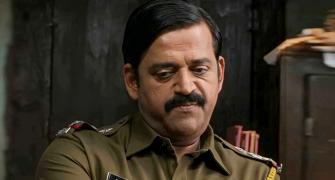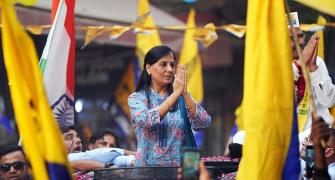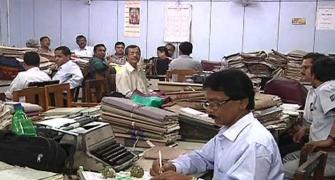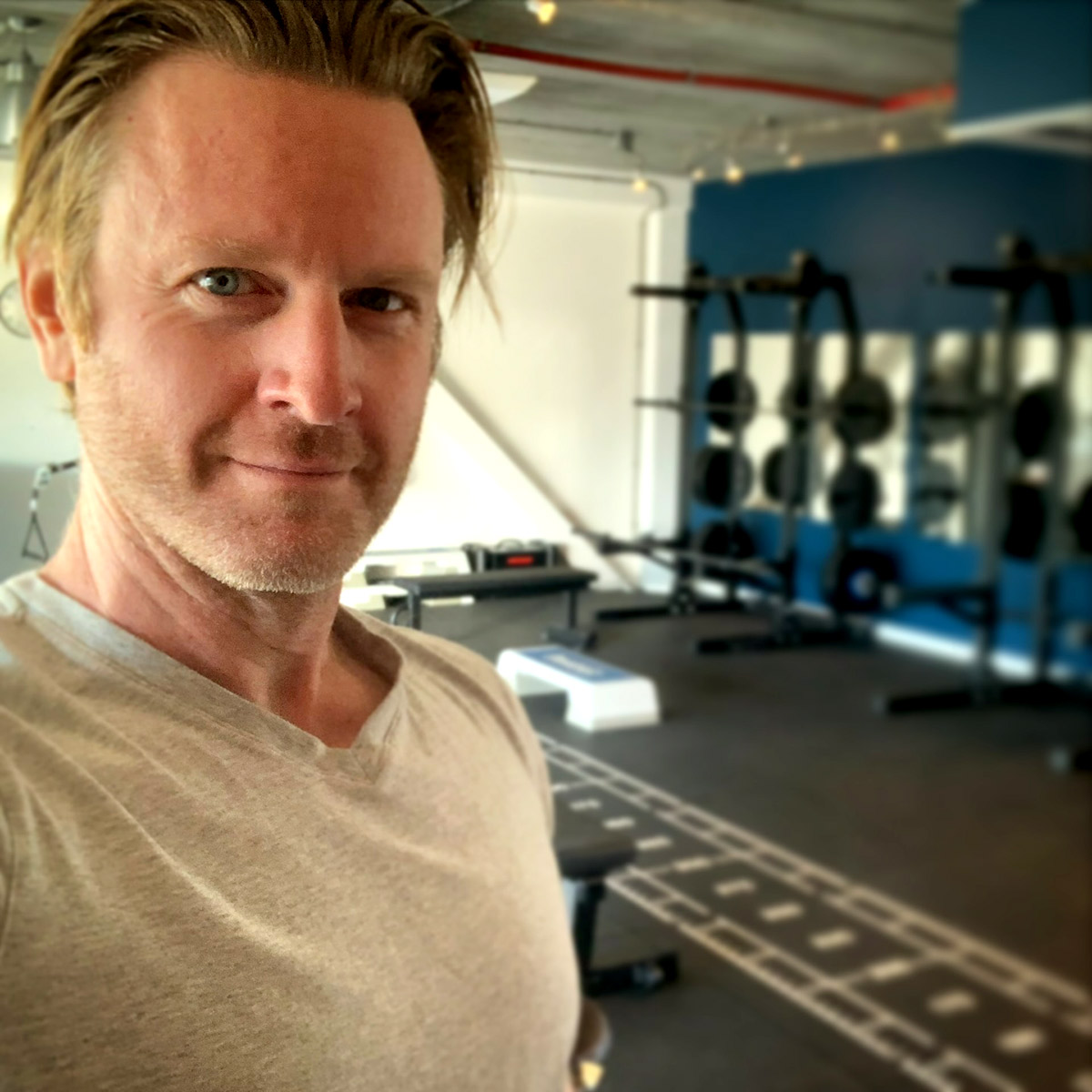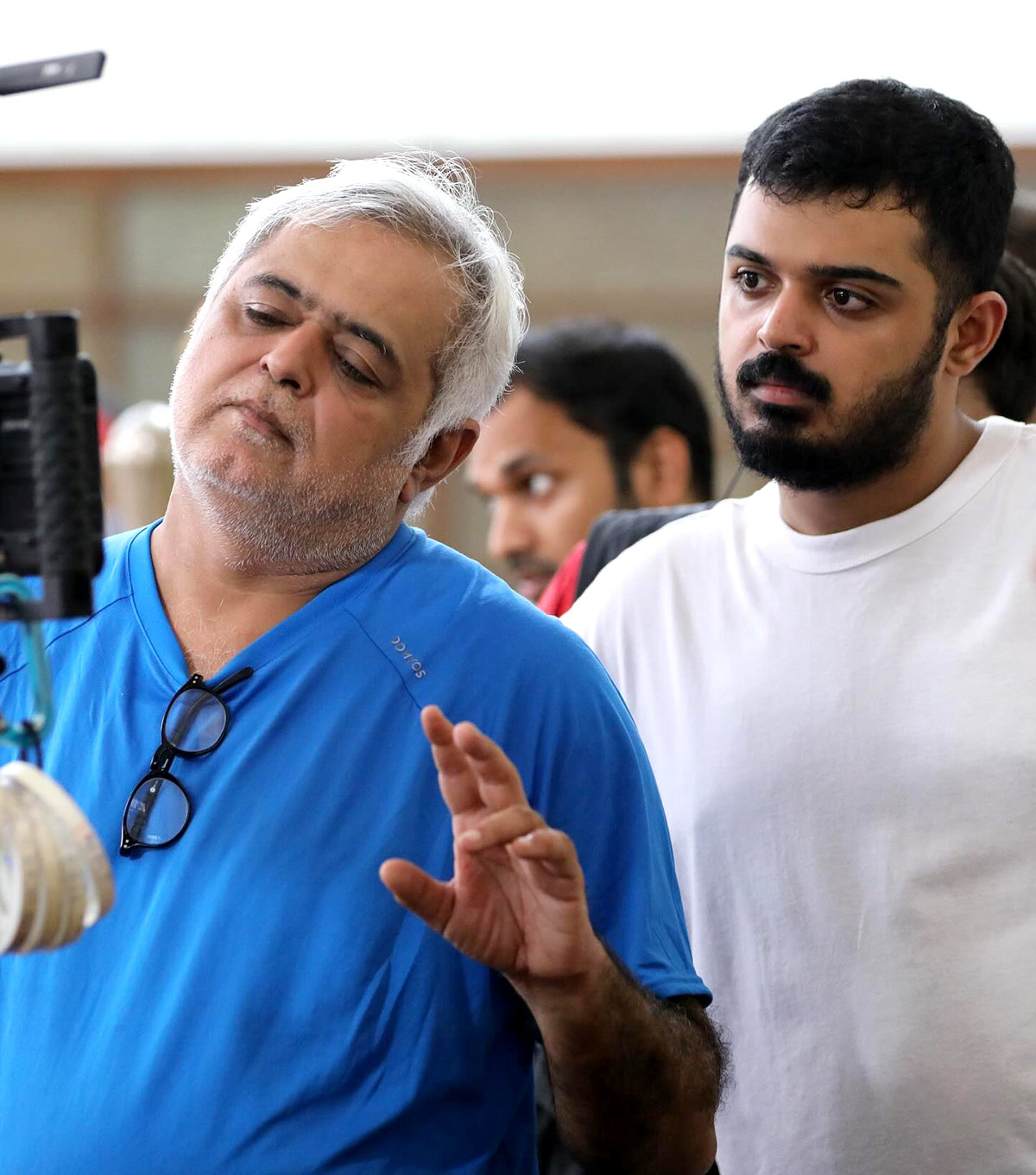'My tool is the way I look. This is the only thing that distinguishes me.'
'Most of us dress similarly. What sets you apart is your face. If you change that also, you're like anybody else.'

Naila Grrewal made her acting debut in 2015 with Imtiaz Ali's Tamasha, which featured Deepika Padukone and Ranbir Kapoor.
She went on to play supporting roles in Bareilly Ki Barfi, Bhangra Paa Le, Dear Maya and Thappad until she found fame in the Ravi Kishan-led satirical series, Maamla Legal Hai.
Naila is also one of the four leads in the upcoming rom-com, Ishq Vishk Rebound, which will see the debut of Hrithik Roshan's cousin Pashmina Roshan.
"There are a lot of people who tell you to be different, to be like X, Y, Z person. At the end of the day, it boils down to yourself talking to yourself. And I do that. I go to the mirror and talk to myself and tell myself to constantly recall who you are, where you're coming from, what is your foundation, what is your background..." reveals Naila.
"You have to constantly remind yourself to stay true to yourself," Naila tells Mayur Sanap/Rediff.com.
The industry tends to typecast actors who play smaller parts.
I don't see it like that. I just made sure to keep auditioning for interesting parts.
I also constantly work on my craft because the casting directors are seeing the progress. They are aware that this is what she was before and this is how she is now.
Thankfully, I didn't face the idea of being typecast.
I was playing different kinds of characters even when I took up smaller parts. It was just about persevering to get bigger and meatier roles.
Again, it's not about the duration of the role. I don't want to get stuck with the idea of a lead part.
I feel our audiences are more evolved today. They don't care who the lead is.
They care about what they're seeing on screen and whether that resonates with them or not.

How much has your career changed after Maamla Legal Hai?
It's been a journey for me.
I started off with smaller parts, and today I have pretty much lead an interesting series. It feels lovely and reassuring.
I'm overwhelmed with the love.
I've been receiving messages from all over the world.
Do casting agents recognise you now? Has the process of casting become easier for you?
I would say so. I feel now the idea of awareness is there.
It's a different phase as compared to what it was earlier.
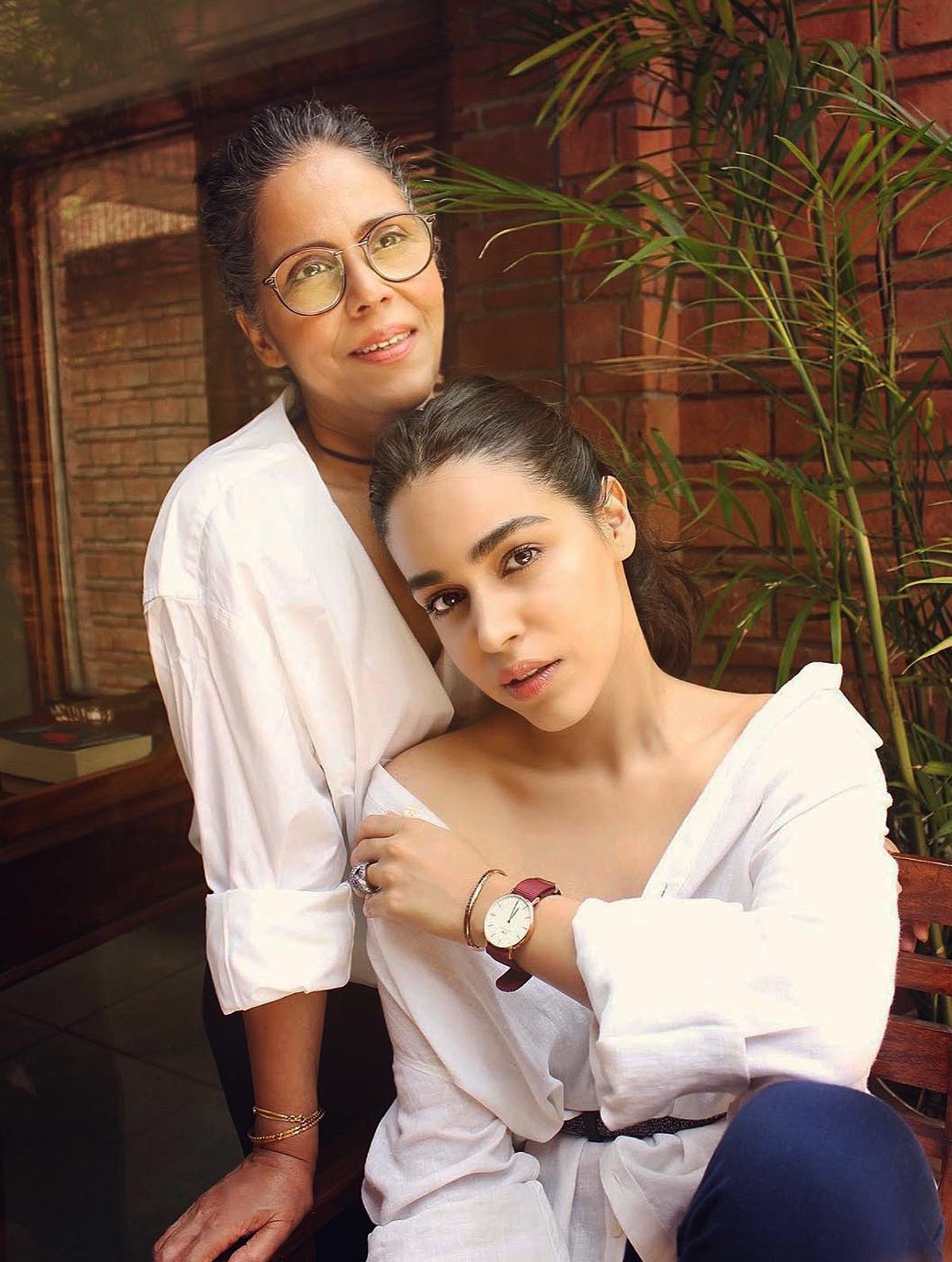
How did acting happen to you?
I was born and brought up in Delhi.
I had an inclination towards the performing arts since I was in school. I was always doing dance.
I took up theatre as one of my main subjects in school. In college, I was in the dramatic society.
When did you come to Mumbai? How did your parents react when you told them about your transition from journalism to acting?
My parents were supportive of the idea. They said I should complete my education first, so that I have something to fall back on.
As an actor, there are a lot of moments when you feel down and out. If a person needs to fall back on something, whether it's for financial reasons or otherwise, you need to have a degree in hand to get work.
So I made sure I had my education in place.
When Tamasha happened, I was very young. I had just entered college.
I didn't know anything about how a set works, how to hit your mark, how to say a dialogue in front of the camera.
But one thing I discovered on the sets of Tamasha was that mujhe iska chaska lag gaya. I felt that whatever this is, I am enjoying it. Now I need to work on the craft.
It's really just been a journey since then.
I was working out of Delhi. I moved to Bombay about a year-and-a-half back.
Imtiaz Ali is a dream director for any actor. What was your experience with him like?
Imtiaz Ali is very, very, different. He internalises a lot of his ideas. His way of expressing his inputs is also very different as compared to other directors.
After he saw my audition, I went to meet him on set, where he was shooting an important scene with Deepika (Padukone) and Ranbir (Kapoor).
He told me to give another audition. I thought it would be with one of his assistants. But then I realised that Ranbir would be co-acting with me and Imtiaz sir would be recording it.
I was very nervous. I did whatever I could do.
Then, I got a call that Imtiaz had liked it.
I didn't even know what the part was, I just knew that I am going to be in an Imtiaz Ali film in some capacity and act alongside Ranbir Kapoor.
Was it tough to land auditions when you were far away in Delhi?
I used to be in touch with casting directors and their assistants.
I would make my mom hold the camera and ask her to record me.
The experiences that I had -- whether it was Bareilly Ki Barfi or Thappad 00 were great learning experiences.
As young actress, how do you deal with external factors such as maintaining a social media image, red carpet appearances and networking?
It's a package deal. You have to do those things.
To be honest, I enjoy it.
I like the idea of collaborating with other people, getting an interesting look and then going for these fun events.
Maybe because I'm an outsider, I see it in a different way.
You're here to be a performer. You're here for audiences to see you.

Have you ever been starstruck at such events?
Not anymore. When I had to act with Ranbir without being told that he would be in the same room, those feelings of starstruck went away that very day.
I really admire him as an actor. To be in a room with him, act with him, talk to him, laugh with him, it was a surreal moment.
Young actors are often advised to work on their social media following to land a role. Even socialising is a big part of the game. What's your take on that?
When it comes to a performance-related character, a director or a casting director will only go to a person if they feel that person can act.
All these other things are just things to be said.
There are so many people on social media who may have millions of followers, but that doesn't make them actors.
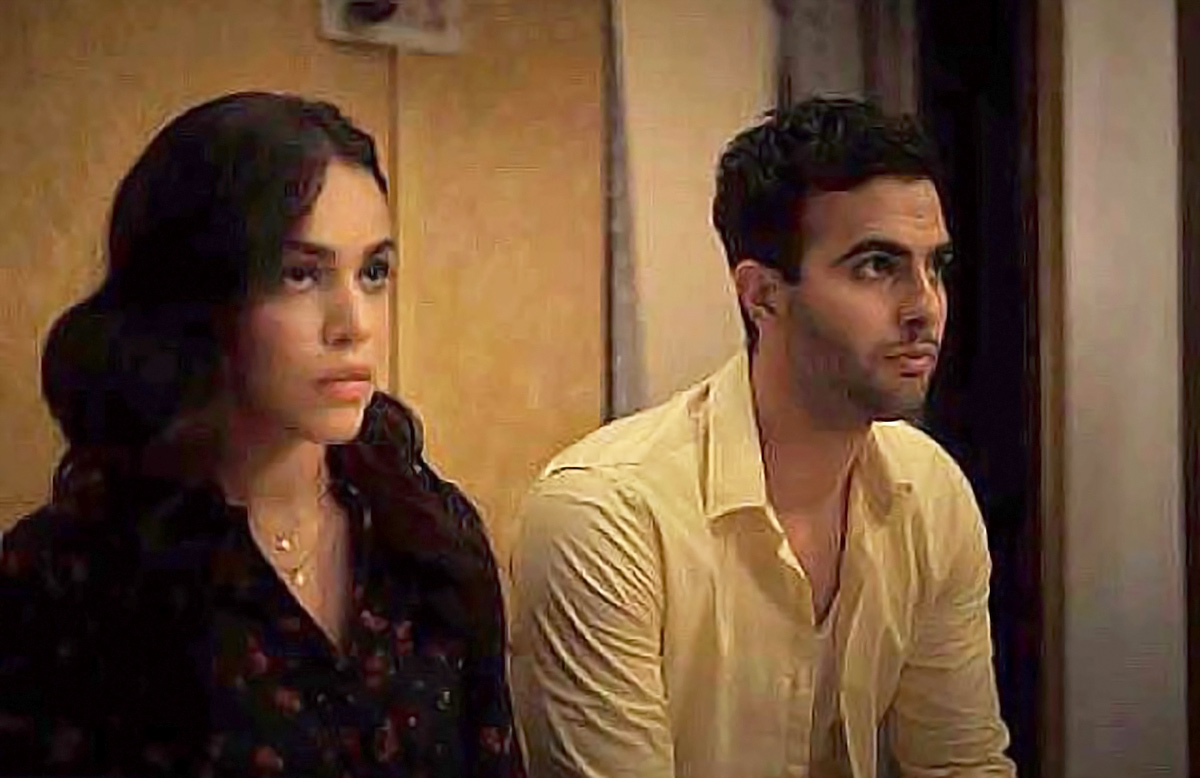
Kriti Sanon, who is at top of her game, recently opened up about her frustration for losing opportunities to nepotism. Did you experience that as well?
The idea of privilege and non-privilege does exist.
Certain people come from a background wherein their fathers and uncles and aunties are a part of the business.
Their journey is a lot more smooth sailing in terms of accessibility.
Some star kids are more privileged than other star kids. Within themselves also, there's a game of who is more privileged and who isn't.
Similarly, even in terms of people who are not from the industry, there is an idea of privilege and non-privilege.
For example, if I'm coming from a privileged background because I'm going to my audition in a car or in an Uber, others may take the local train.
All this disparity exists.
How do you deal with failed auditions?
It's a learning curve, right? You take it as a learning exercise.
It's very important for actors to realise that it's not so much about a good or bad performance, it's about how a director perceives your audition.
Sometimes, it's not about the performance as much as it is about the director connecting with the person that you are in front of the camera.
I try not to associate it with me acting well or not. It's more about bringing the essence of what the director wishes to see in that character.
Is there a performance you wished you could have done?
I really loved Udta Punjab as a film. I constantly revisit bits and pieces of that film.
The way Alia (Bhatt) played her character was very interesting. It was so far away from her reality and yet, she made it look so real and exciting and palpable.
I would love to play a character like that.
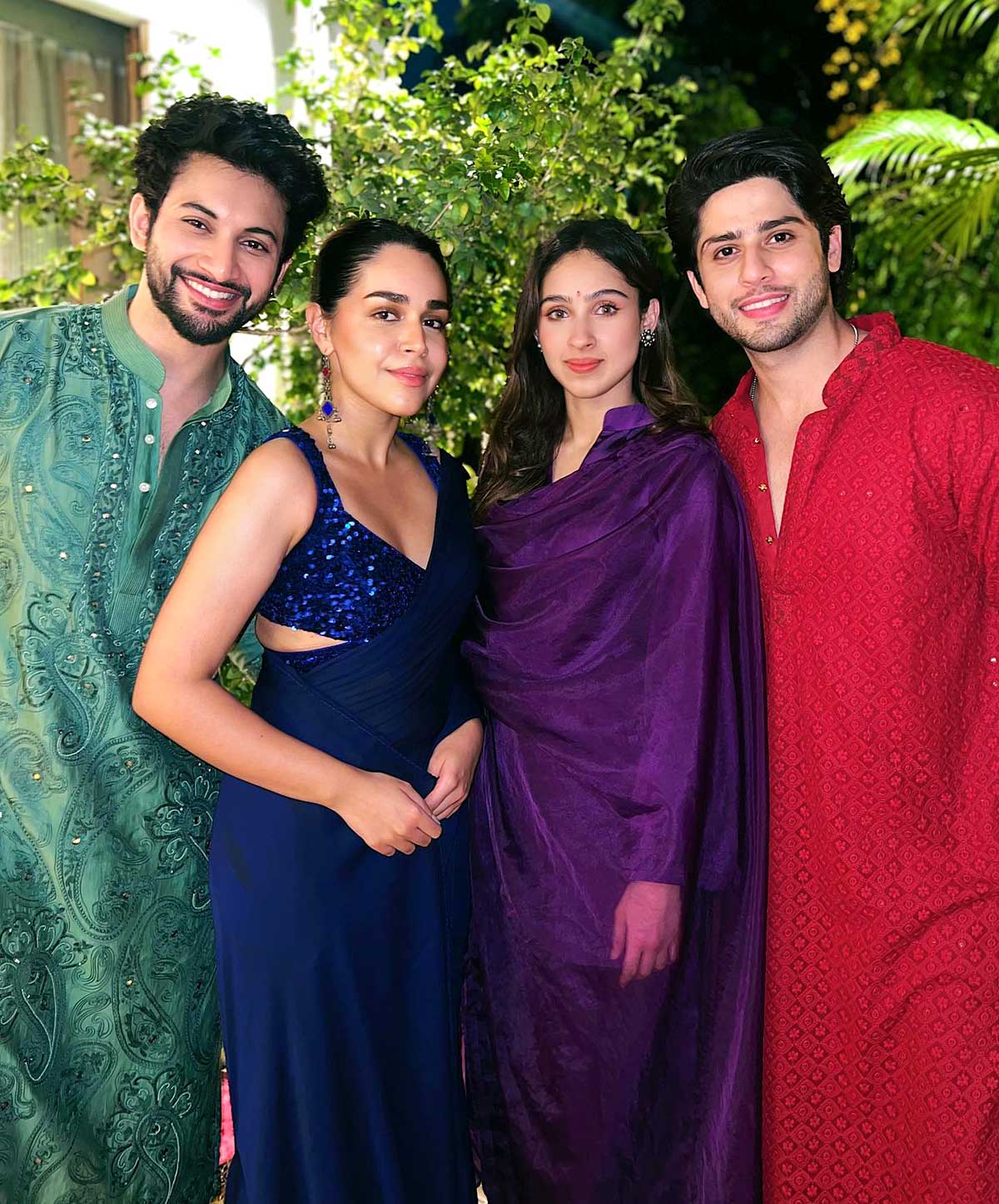
There is so much pressure on looking perfect all the time. Stars go through medical procedures to look good. How do you deal with this pressure? Has anyone asked you to get, say, fillers done, to land a role?
Thankfully not.
I believe that as an actor, our face is our medium to emote. If you change that, you are changing the ability to communicate with your audiences.
It is that uniqueness we all hold. If you lose that, you're losing a big chunk of your tool.
I don't wish to bring about any change because I feel like this is my greatest USP.
My tool is the way I look. This is the only thing that distinguishes me.
Most of us dress similarly. What sets you apart is your face. If you change that also, you're like anybody else.
In an industry where there are constant comparisons and opinions about how you should carry yourself and what you should do, how difficult it is to retain your originality?
That involves one constantly telling oneself to be true to yourself. It's a constant self-talking that you have to do.
There are a lot of people who tell you to be different, to be like X, Y, Z person. At the end of the day, it boils down to yourself talking to yourself. And I do that.
I go to the mirror and talk to myself and tell myself to constantly recall who you are, where you're coming from, what is your foundation, what is your background...
You have to constantly remind yourself to stay true to yourself.




